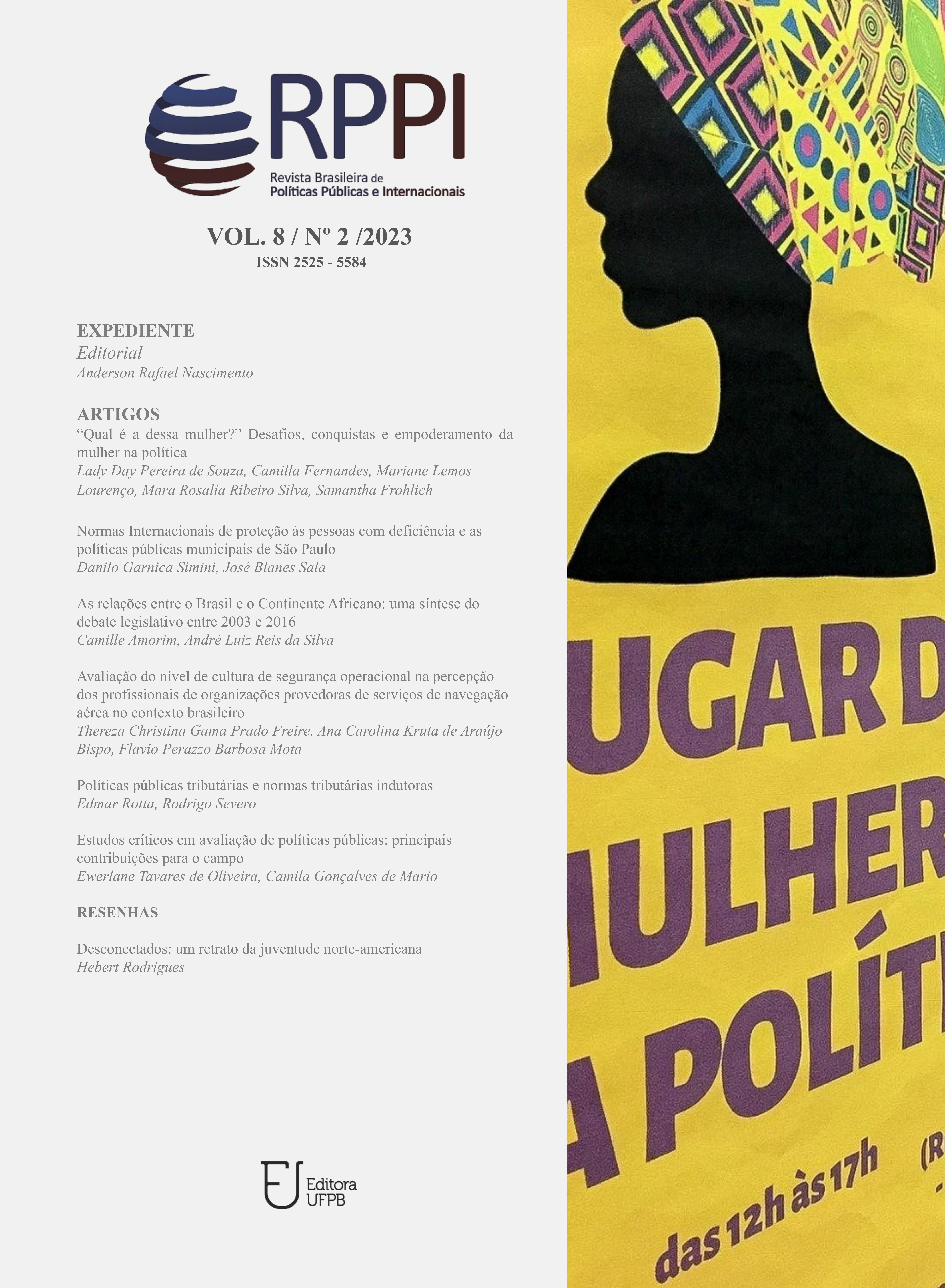PUBLIC TAX POLICIES AND INDUCING TAX RULES
DOI:
https://doi.org/10.22478/ufpb.2525-5584.2023v8n2.67361Keywords:
Extrafiscality, Inducing tax rules, Tax public policiesAbstract
Public tax policies (PPT) promote tax-inducing norms (NTI), aiming to achieve objectives and promote tax justice by inducing behavior. And the NTI, species of the extrafiscal genre, are presented as forms of intervention in the social and economic domain. The delimitation of the study in taxes, has as reference the principles of isonomy, contributory capacity, proportionality and essentiality. The theme analyzes the promotion of PPT using the NTI as a means. In this context: What is the constitutional normative density and the point of equivalence between the PPT and the NTI? And as a goal, to know and identify the equivalence points. The qualitative methodology is carried out from the analysis of documents and literature review. The investigation revealed that in the midst of the double limitation - tax and economic - of the NTI, equality and the ability to pay lose intensity, but are not completely removed, seeking compatibility, thus, corroborating with the fundamental duty to pay taxes (extra)fiscal, as extrafiscality presupposes taxation, and the tax can be used as an instrument to carry out public purposes not only linked to collection, through the promotion of PPT defined from a public problem, demonstrating the point of view equivalence between PPT and NTI.
Downloads
Downloads
Published
Issue
Section
License
Copyright (c) 2023 Dr., Me.

This work is licensed under a Creative Commons Attribution 4.0 International License.
Autores que publicam nesta revista concordam com os seguintes termos:- Autores mantém os direitos autorais e concedem à revista o direito de primeira publicação, com o trabalho simultaneamente licenciado sob a Licença Creative Commons Attribution que permite o compartilhamento do trabalho com reconhecimento da autoria e publicação inicial nesta revista.
- Autores têm autorização para assumir contratos adicionais separadamente, para distribuição não-exclusiva da versão do trabalho publicada nesta revista (ex.: publicar em repositório institucional ou como capítulo de livro), com reconhecimento de autoria e publicação inicial nesta revista.
- Autores têm permissão e são estimulados a publicar e distribuir seu trabalho online (ex.: em repositórios institucionais ou na sua página pessoal) a qualquer ponto antes ou durante o processo editorial, já que isso pode gerar alterações produtivas, bem como aumentar o impacto e a citação do trabalho publicado (Veja O Efeito do Acesso Livre).




_.jpg)






.png)


.jpg)
_.png)
